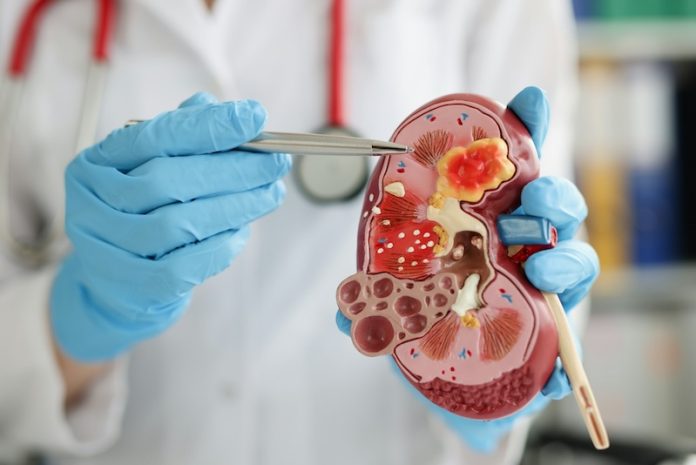
Statins are a popular type of medication that many people take to lower high cholesterol levels. These drugs are effective at reducing the risk of heart disease and stroke by lowering the amount of bad cholesterol in the blood.
One commonly used statin is rosuvastatin, which is known for its strong cholesterol-lowering effects. However, a recent study from Johns Hopkins University has raised concerns about the potential impact of rosuvastatin on kidney health, especially when taken at higher doses.
Rosuvastatin, like other statins, has been widely prescribed since it was approved by the U.S. Food and Drug Administration (FDA).
When the drug first came on the market, there were reports linking it to signs of kidney damage, including hematuria (blood in the urine) and proteinuria (protein in the urine).
These are early warning signs that the kidneys might be under stress. However, there hasn’t been much follow-up research to see how often these issues actually occur in people taking the drug in the real world.
To better understand the risks, researchers at Johns Hopkins analyzed electronic health records from over 150,000 people who started taking rosuvastatin between 2011 and 2019.
They compared these patients with nearly 800,000 people who started taking another popular statin, atorvastatin, during the same period. The study followed these individuals for three years to see how their kidney health was affected.
The results showed that 2.9% of the people taking rosuvastatin developed hematuria, while 1.0% developed proteinuria. When compared to atorvastatin, rosuvastatin was associated with an 8% higher risk of hematuria and a 17% higher risk of proteinuria.
Even more concerning, people taking rosuvastatin were also 15% more likely to develop kidney failure that required serious treatments like dialysis or a kidney transplant.
The study also found that these risks were even higher for people taking larger doses of rosuvastatin.
Despite these findings, the research team noted that 44% of patients with advanced kidney disease were prescribed higher doses of rosuvastatin than what the FDA recommends for people with poor kidney function.
This suggests that doctors and patients need to be more careful when deciding on the right dose of rosuvastatin, particularly for those who already have kidney problems.
Interestingly, the study also found that both rosuvastatin and atorvastatin offered similar benefits for heart health.
This raises the question of whether the potential risks to the kidneys might outweigh the heart benefits for some patients, especially those who are at higher risk for kidney disease.
The researchers concluded that while rosuvastatin is effective at lowering cholesterol, it may carry a higher risk of kidney damage, especially when used at high doses.
They suggest that for people with advanced kidney disease, it might be safer to use a lower dose of rosuvastatin or consider switching to a different statin altogether, like atorvastatin, which appears to have a lower risk of kidney-related side effects.
This study highlights the importance of monitoring kidney health in patients taking rosuvastatin, especially those who are prescribed higher doses.
It also underscores the need for doctors and patients to weigh the benefits and risks of any medication, taking into account the individual’s overall health and existing conditions.
If you’re taking rosuvastatin or any other statin, it’s a good idea to talk to your doctor about this study and whether your current treatment plan is the best option for you.
In summary, while rosuvastatin is a powerful drug for lowering cholesterol and protecting against heart disease, it may also pose risks to kidney health, particularly at higher doses.
The findings from this study suggest that patients with kidney problems should be cautious and discuss their options with their healthcare provider to ensure they are using the safest and most effective treatment for their needs.
If you care about kidney health, please read studies about drug that prevents kidney failure in diabetes, and drinking coffee could help reduce risk of kidney injury.
For more information about kidney health, please see recent studies about foods that may prevent recurrence of kidney stones, and common painkillers may harm heart, kidneys and more.
Copyright © 2024 Knowridge Science Report. All rights reserved.



